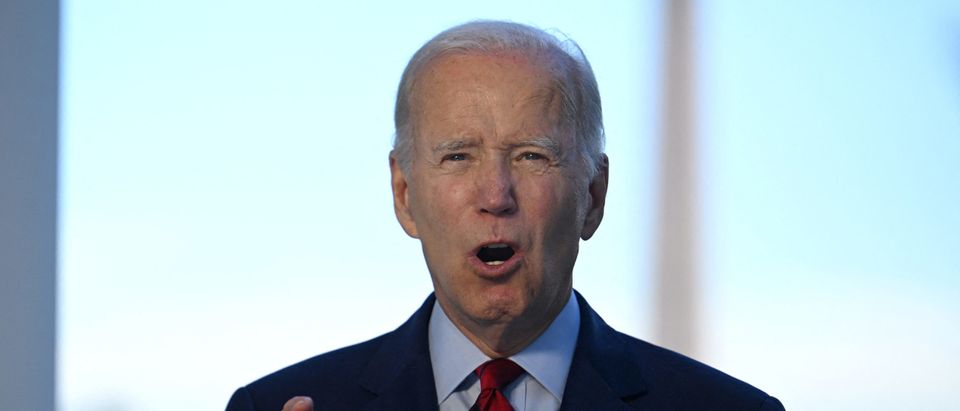President Joe Biden’s administration is reportedly pushing Democrats to halt a pro-Taiwan bill amid increased tensions between the U.S. and China, Bloomberg reported Thursday.
The bipartisan bill was introduced by Democratic New Jersey Sen. Bob Menendez, who chairs the Foreign Relations Committee, and Republican South Carolina Sen. Lindsey Graham in mid-June. The legislation bills itself as “the most comprehensive restructuring of U.S. policy towards Taiwan since the Taiwan Relations Act of 1979” and includes a proposal to designate the country as an official major non-NATO.
“Specifically, the Taiwan Policy Act of 2022 creates a new initiative to bolster Taiwan’s defense capabilities, providing almost $4.5 billion in security assistance over the next four years,” a press release from Menendez and Graham on the bill reads. “The bill also bolsters support for Taiwan’s democratic government; provides additional support for Taiwan’s participation in international organizations and in multilateral trade architecture; takes concrete steps to counter PRC’s aggressive coercion and influence campaigns; creates a Taiwan Fellowship Program; and designates Taiwan as a Major Non-NATO Ally.”
National Security Council spokeswoman Adrienne Watson alluded to the administration’s concerns in a statement to Bloomberg, arguing that it “would contradict and undermine” the longstanding U.S. policy of recognizing the “One China” policy.
“We do have concerns with elements of this bill which would contradict and undermine the United States government’s longstanding one China policy and contravene the President’s constitutional authorities to determine the United States’ position on the status of Taiwan and to determine the manner of diplomatic communications with representatives of Taiwan,” Watson said in the statement.

A man reads a Global Times article about military exercises by the Chinese People’s Liberation Army (PLA) following U.S. House of Representatives Speaker Nancy Pelosi’s Taiwan visit, at a newspaper stand in Beijing, China, August 4, 2022. REUTERS/Thomas Peter
Democratic Connecticut Sen. Chris Murphy – a Senate Foreign Relations Committee member – also noted that “the White House has significant concerns,” Bloomberg reported. Murphy added that he shares these “significant concerns” and that, particularly given current tensions between the U.S. and China, it may not be “the moment to throw out 40 years of policy.”
Still, Murphy admitted that it is sensible for the U.S. “to draw closer to Taiwan,” according to Bloomberg.
Specifically, the Biden Administration is apparently concerned about the impacts that the bill would have on the U.S. policy of strategic ambiguity towards Taiwan, Bloomberg reported, citing “people familiar with the matter.”
In recognizing the “One China” policy, the U.S. acknowledges that the Chinese government is the only government, but still has an unofficial relationship with Taiwan. The U.S. government also typically takes an ambiguous viewpoint regarding military intervention in Taiwan, though in May the president suggested he’d consider intervening militarily should China invade.
That comment was soon walked back by both administration officials and the president himself, who argued “the policy has not changed at all” despite his remark.
The proposal also comes amid increased tensions between the U.S. and China after House Speaker Nancy Pelosi visited Taiwan earlier this week. The visit, which was expected but unconfirmed prior to her landing, prompted threats from China.
The U.S. in return stressed that Pelosi’s visit did not mark any change in policy. John Kirby, the White House Coordinator for Strategic Communications at the National Security Council, highlighted that they “oppose any unilateral changes to the status quo from either side.” (RELATED: ‘I Find That Hard To Believe’: Martha MacCallum Presses Kirby On Pelosi’s Reported Trip To Taiwan)


